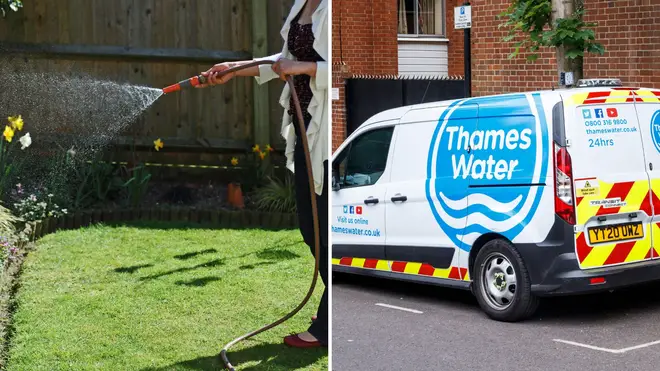
Clive Bull 1am - 4am
12 July 2023, 09:35 | Updated: 12 July 2023, 09:36

A water ration could be around the corner for Londoners as a leading environmentalist warns chalk streams are at risk of drying up.
James Wallace, chief executive of River Action, has warned that the chalk streams which provide London with drinking water are at risk of drying up, as he calls for emergency action.
“When we look at water security, look at the Chilterns. The Chilterns feed North London,” he said speaking to members of the Greater London Authority (GLA).
“Now many streams are permanently dry and some are only 25% of normal flow rates. This means that we are going to be seeing rationing of water in North London imminently. We’re not talking 20, 30, 40 years, we’re talking imminently.
“When are we going to treat this like it’s an emergency? I appreciate it takes time to dig a reservoir but some of these things, like changing our abstraction requirements, reducing consumer demand, fixing leaky pipes, this is a national crisis and we need to address it that way.”
It comes after Thames Water published its annual report this week, which revealed that the utility company lost 602.2 million litres of water a day between 2022 and 2023 based on a three-year rolling average.
Cathryn Ross, the company’s interim chief executive, told the GLA that a third of this was actually unmeasured consumer use.
She also said that the Plan For Water, a strategy announced by the government which aims to reduce leakages by half by 2050 and reduce the average consumer use of water from 144 litres per person per day to 110, does not go far enough.
Read more: 'It's a crime': Naturalist Steve Backshall's damning verdict on Thames Water
Read more: Thames Water fined over £3m for pumping ‘millions of litres’ of sewage into rivers near Gatwick

Keir Starmer calls for water bosses to have 'personal liability'
“There is more we need to do,” she said.
“But we actually need to change our national conversation about water, we need to change how we think about water.
“We need to understand, for example, that London has more or less the same rainfall as Jerusalem and we’re not living in a wet country where we can take water for granted.”
Ms Ross said 80% of Thames Water customers already meet the 110 litre target, but 20% use a lot more, often for watering gardens.
Thames Water now wants to build a new 150-billion-litre reservoir in Abingdon, Oxfordshire in a bid to resolve its growing problems.
If implemented, it would be the first reservoir built in the UK since the privatisation of water companies in 1989. But the proposal is facing local pushback.

Ms Ross said there would have been no need for a hosepipe ban last summer if the reservoir had been in place and many of the company’s pipes were “ageing assets”.
These pipes should have been replaced, but had not because customers hadn’t paid for it, she added.
Thames Water, which serves 15 million people as the UK’s largest water company, has said it will update its infrastructure to reduce sewage discharges.
The water company was fined £3.3mil earlier this month after pleading guilty to polluting rivers with sewage.
Reports have also suggested the company could be at risk of collapse, as it emerged it had accumulated £14billion in debt.
But Mr Wallace blamed this on the “rapacious” profiteering of shareholders and other financial service groups loading their debt onto the utility firm.
“Let’s not forget that we have a deregulatory political framework that has been in place for decades,” Mr Wallace told the GLA.
“That is the problem. I’m not saying I would do it personally but I can understand why, if you’re in Macquarie between 2006 and 2017, they increased debt from £3.4 billion to £10.8 billion in those few years.
“Why did they do it? They did it to pay out their shareholders. Maybe a little bit of investment, but they did it because they are a rapacious fund that is there to make shareholders rich, they are not there to provide an asset.”